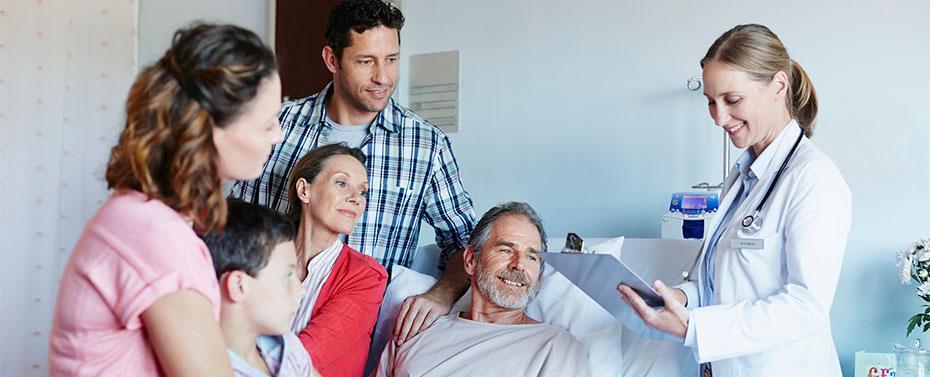Medications

Bringing Your Own Medication from Home
Please inform us if you have brought any medications from home. For your safety and to reduce the possibility of overmedication and/or adverse drug interactions, your own pre-hospitalization medication must be sent home with a family member and must not be brought back to the hospital, unless there is a specific written order. If the medication cannot be sent home, then it will be sent to the pharmacy for safe keeping. In certain cases, it may be necessary to use your own medication during your stay. Your medication will be identified and labeled properly by a pharmacist and maintained by your nurse, who shall administer it at the appropriate times.
Your healthcare team will be checking your ID bracelet before you are given medication.
If at any time during your stay you would like to speak to a pharmacist about medicine you are being given, ask your nurse to contact the pharmacy.
Medication Counseling
Before giving you any new medication, your nurse, physician, or pharmacist will explain what the medication is for and describe possible side effects. You or a family member will also be given a printout with information about your medication.
Before leaving the hospital, it is important to understand your discharge medication list. Your healthcare provider will tell you the brand name, generic name, dose, what the medication is for, when you should take it, and what to do if you notice any of the possible side effects. Ask any questions you have about your medications or if you would like to speak to a pharmacist before discharge.
Let your doctors know if you feel like you are experiencing any side effects. Fill your new prescriptions on your way home so that you will have it available for your next dose.
Knowing Your Medications
While you are in the hospital, make sure you know what medications you are taking and why you are taking them. Here are some questions to ask:
- What is the brand or generic name of the medicine?
- Why am I taking this medicine?
- What dose am I taking? How often, and for how long?
- What are the possible side effects?
- Are there any foods, drinks, or activities that I should avoid while taking this medication?
- Will this medication interact with other medications I am taking? Should I avoid any over-the-counter medicines or herbal supplements when taking this medication?
Important Information: Prescribing Opioid Painkillers in the Emergency Department
People sometimes misuse opioid pain medications (painkillers), either by taking them in ways they weren’t prescribed or by taking someone else’s prescription. One in four overdose deaths involve prescribed opioid painkillers. Our emergency department will only provide pain relief options that are safe and appropriate for you.
For your safety, we will:
- Treat your pain with non-opioid medications and therapies.
- Review your medication history on NJ’s Prescription Monitoring Program.
- Keep your prescription opioid painkillers safe.
We do not:
- Prescribe long-acting opioid pain medications such as long-acting oxycodone, long-acting morphine, methadone or fentanyl patches.
- Prescribe more than a short 3-day course of opioid pain medications.
- Refill lost, stolen or destroyed opioid pain medications that you have filled.
PRESCRIPTION OPIOID PAINKILLERS CAN BE JUST AS DANGEROUS AS ILLEGAL DRUGS.
- Opioid painkillers can cause confusion, drowsiness, and increased sensitivity to pain.
- People can become dependent or addicted to opioid pain medications.
- An overdose of opioid pain medications can cause a person to stop breathing and die.
KEEP YOUR PRESCRIPTION OPIOID PAINKILLERS SAFE!
- Keep opioid painkillers in their original labeled container, out of reach of children and pets.
- Keep painkillers in a locked cabinet that only you can access.
- Dispose properly of unused opioids. Leftover medication can be dangerous for children and animals and a danger for family members or others with a history of substance abuse who visit the home. If you do not have access to a DEA-authorized disposal program, you can throw drugs in the household trash. First take them out of the original containers and mix them with an undesirable substance such as coffee grounds or kitty litter. Then put the unattractive mixture in a sealable bag, empty can, or other container to prevent it from leaking out of a garbage bag. To find a DEA-approved local opioid disposal location please call the New Jersey Division of Consumer Affairs at 800-242-5846 or search online.
